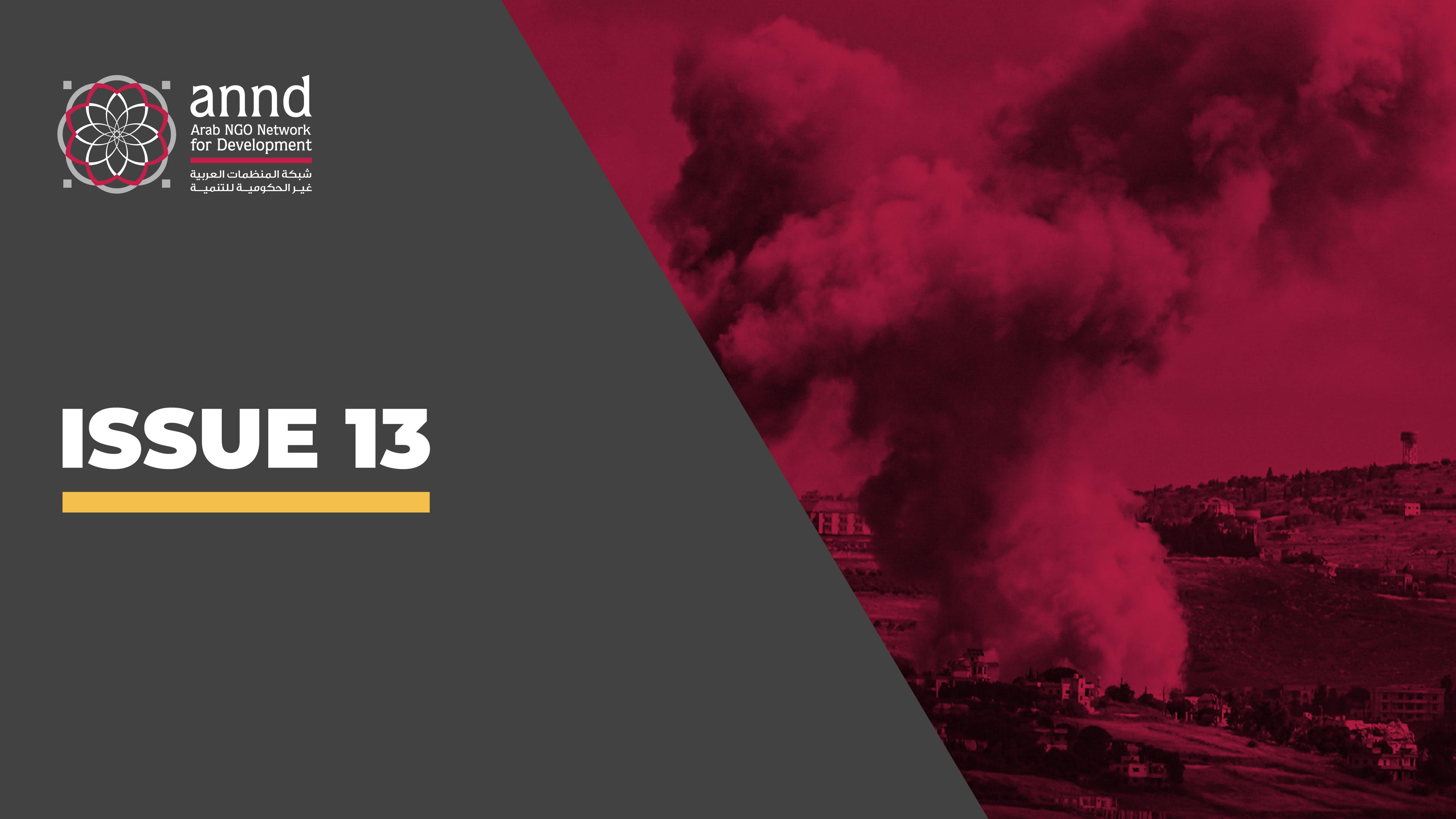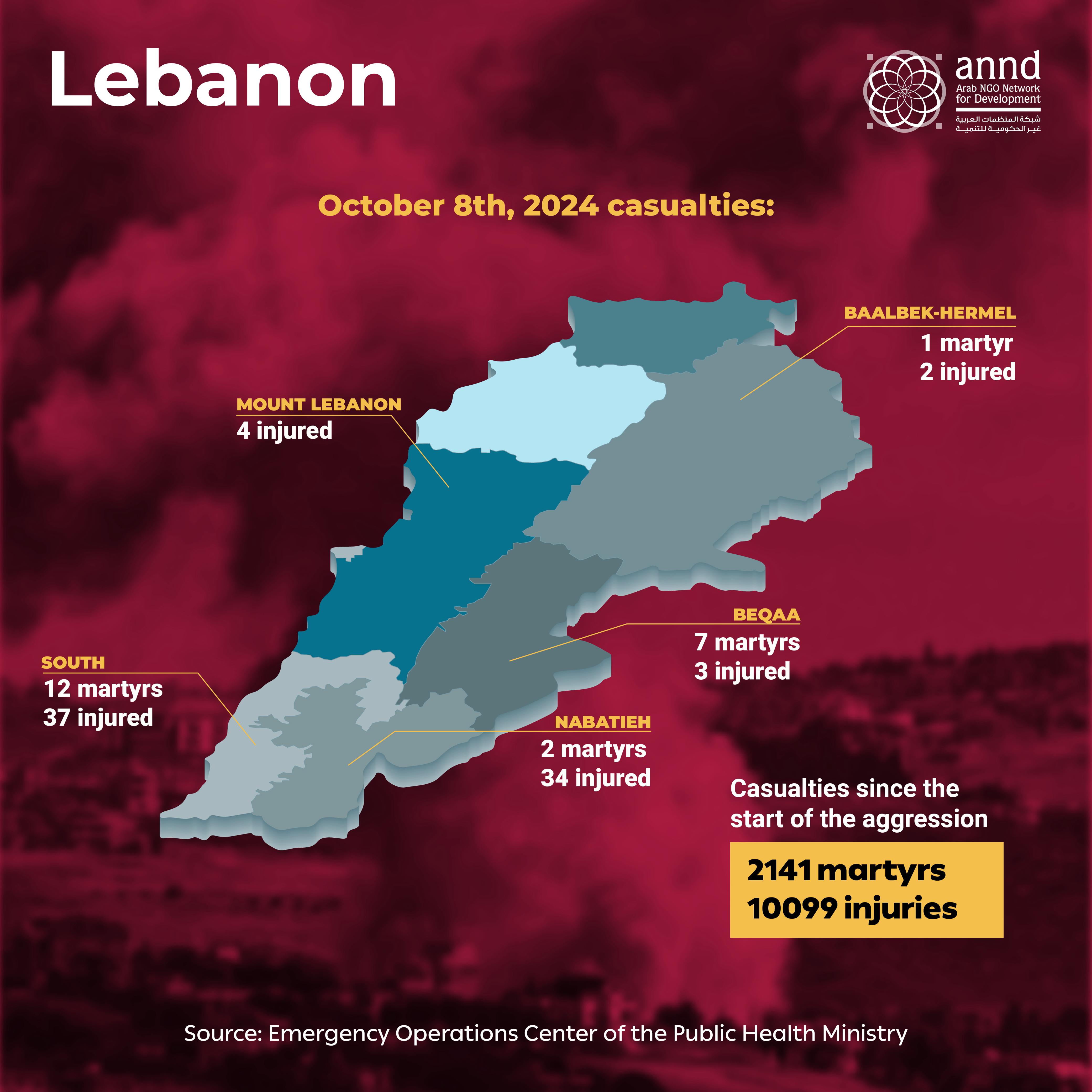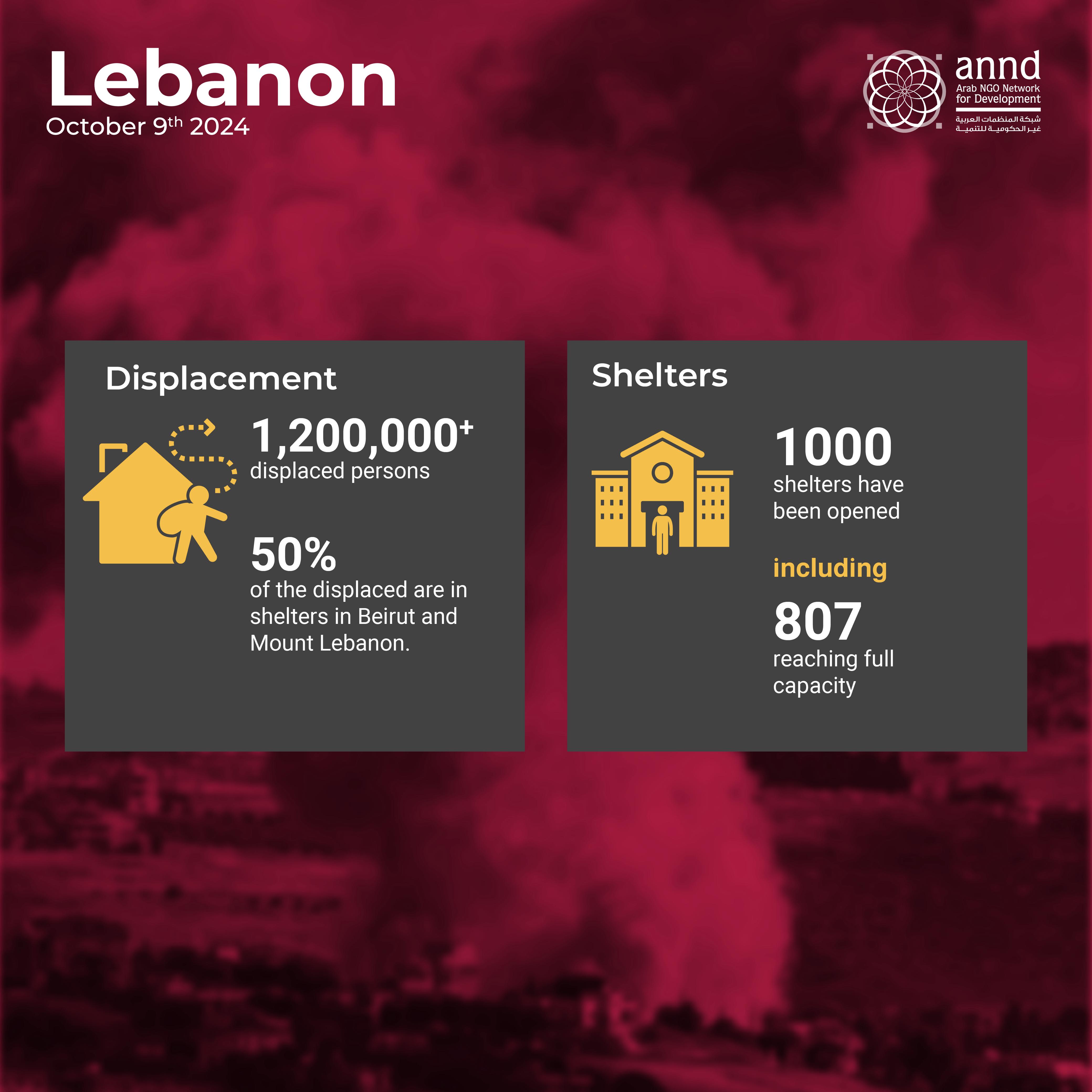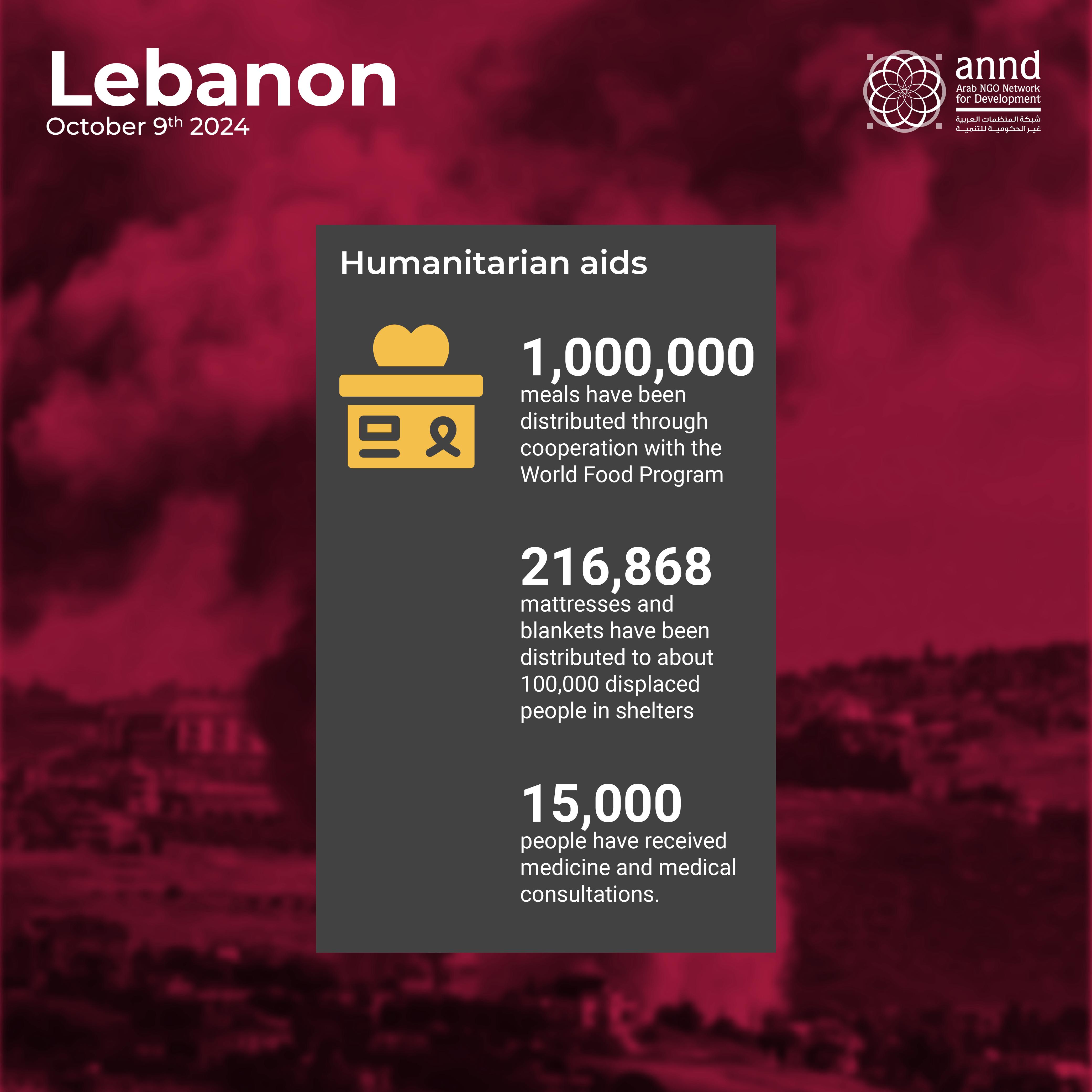
A Region on Fire
Issue 13, October 9, 2024
On the first day after a full year of war: No signs of a ceasefire agreement in sight.
Evacuation of Northern Gaza
The Israeli army continues to displace Palestinians from three towns in northern Gaza in what appears to be an unofficial implementation of the "Generals' Plan," which aims to evacuate northern Gaza and impose a total blockade in preparation for settlement.
The "Generals' Plan" was revealed in early September and involves displacing all Palestinians from northern Gaza within a one-week deadline before imposing a siege on the area, forcing Palestinian fighters to choose between death or surrender. The plan was drafted by former Israeli military leaders associated with the far-right, led by former National Security Council chief Giora Eiland, and was published in several media outlets. The goal of this plan is to separate northern Gaza from the Gaza Strip and prevent any resistance in this region.
Gaza: Al-Shifa Hospital Scenario Again
On the 369th day of the aggression on Gaza, the media office in Gaza issued a distress call to the international community, demanding an end to the genocide and ethnic cleansing being carried out by the occupation in northern Gaza.
The Ministry of Health in Gaza evacuated Kamal Adwan Hospital, located in northern Gaza, and transferred several patients. Intensive care patients were placed on ventilators for transportation to southern hospitals after the Israeli army besieged the hospital and demanded a full evacuation of patients and healthcare staff. When doctors attempted to leave the area toward Gaza City, they were bombed, forcing them to return to the hospital. Israel aims to dismantle the health system, akin to "systematic genocide" and "forced displacement" of northern Gaza residents, in the face of global silence and the absence of efforts to end Palestinian suffering.
Since dawn on Wednesday, 70 Palestinians have been martyred, and an airstrike targeted Yemen Al-Saeed Hospital, which houses displaced people in Jabalia refugee camp, resulting in dozens of deaths, including children and women.
In Israel, nine people were injured in a stabbing in the city of Hadera, north of Tel Aviv, with two in critical condition. The suspect was reported to be from the city of Umm al-Fahm.
The United Nations Relief and Works Agency for Palestine Refugees (UNRWA) stated that seven schools housing displaced people had been evacuated due to intensified military operations in northern Gaza. UNRWA Commissioner-General Philippe Lazzarini criticized the evacuation orders issued by the Israeli army, stating they forced people to flee repeatedly, particularly in Jabalia camp in Gaza.
Lebanon: Battlefield Developments
According to the Emergency Operations Center of the Public Health Ministry, yesterday’s casualties are as follows:
• Mount Lebanon: 4 injured
• Southern Lebanon: 12 martyrs and 37 injured
• Nabatieh: 2 martyrs and 34 injured
• Bekaa: 7 martyrs and 3 injured
• Baalbek-Hermel: 1 martyr and 2 injured
This raises the total death toll since the start of the aggression to 2,141, with 10,099 injured.

The Israeli army continued its heavy bombing of Beirut's southern suburbs, the south, and the Bekaa. Israeli warplanes struck a shelter in the town of Al-Wardaniyeh in the Iqlim al-Kharroub region (Mount Lebanon), which housed Palestinian refugees who had fled Rashidieh camp in southern Lebanon. The shelter, managed by a non-governmental organization under contract with the Ministry of Social Affairs, resulted in the death of six people and the injury of 15.
The Israeli army continues to block rescue and ambulance teams from reaching bombing sites. It targeted the firefighting unit in the town of Bra’sheet (Bint Jbeil district) for the third consecutive day, leading to 10 deaths and four missing crew members. Israeli warplanes also conducted two airstrikes on the Lebanese Civil Defense center and a church hall in the town of Dardghia (Tyre district), with reports of at least four deaths and several injuries, according to a Russia Today reporter.
Hezbollah fired tens of rockets into northern Israel, particularly Haifa, Safed, and the Kiryat Shmona area, in what was described as the fiercest attack since the start of the war, causing high casualties and killing two Israelis. Hezbollah also claimed to have repelled Israeli incursions in the Al-Labouneh area of western Bekaa for the second consecutive day.
In Syria: Media outlets reported that four people were killed in an initial tally of an Israeli airstrike on a residential building in the Mezzeh area of Damascus on Tuesday night. An Israeli source claimed that the building housed a commander in the Iranian Revolutionary Guard, though Revolutionary Guard sources denied any casualties among their personnel. Airstrikes continued in various parts of Syria.
Political Positions
Prime Minister Najib Mikati stated that Arab and international efforts to halt the aggression on Lebanon and secure a temporary ceasefire to discuss key political steps, particularly the full implementation of UN Security Council Resolution 1701, remain ongoing. He emphasized that Israeli obstinacy and its desire to achieve what it considers victories are hindering these efforts. He noted that the displacement crisis adds further pressure, with the government mobilizing all its resources to address it.
The Speaker of the Lebanese Parliament, in an interview with Al-Sharq Al-Awsat, confirmed that there had been no positive progress regarding "ending the Israeli war on Lebanon." He noted that Hezbollah had renewed their mandate to him to the lead political negotiations. He added that Lebanon's position remains committed to the principles agreed upon in his meetings with Mikati and Jumblatt. Regarding international efforts to end the war, he stated, "The French are still with us, as are the British. The Americans say they are with us, but they are not doing anything to stop the aggression."
Information Minister Ziad Makari stated that the war would be long and violent and emphasized that the army is securing the airport's safety while the state takes measures to safeguard key facilities. He also highlighted the Ministry of Information's significant role, particularly in combating fake news.
The director of Beirut Port, Omar Itani, confirmed efforts to move goods, especially food and medical supplies, in anticipation of potential Israeli targeting. He noted that, so far, there has been no naval blockade, and commercial ships are arriving almost normally.
Humanitarian Response
The United Nations Office for the Coordination of Humanitarian Affairs (OCHA) warned of the rapidly deteriorating humanitarian crisis in Lebanon. The office stated that Israeli airstrikes have not only intensified but also expanded to areas previously unaffected, increasingly targeting vital civilian infrastructure.
The number of displaced persons has exceeded 1.2 million due to the aggression. About 1,000 shelters have been opened, with 807 reaching full capacity. Fifty percent of the displaced are in shelters in Beirut and Mount Lebanon. The Lebanese General Security recorded the return of 311,034 Syrian citizens to their country after fleeing to Lebanon during the Syrian war.

One million meals have been distributed through cooperation with the World Food Program, and 216,868 mattresses and blankets have been distributed to about 100,000 displaced people in shelters. About 15,000 people have received medicine and medical consultations.
France and Qatar continue to send emergency humanitarian aid. A French military aircraft and a Qatari Ministry of Defense aircraft arrived today, carrying 27 tons of medical supplies for emergencies, including blankets and hygiene kits, to Beirut.
France had previously sent 12 tons of aid on September 29, 2024, to support clinical care for the injured and the displaced.

International Positions
In a notable development, the director of Israel’s Mossad informed the CIA chief that Israel would not ceasefire with Hezbollah until the hostages in Gaza are released, adding pressure on Yahya Sinwar to release them.
The Israeli army, responding to statements from the Israeli Prime Minister regarding the killing of Hashem Safi al-Din, a member of Hezbollah's Shura Council and a potential successor to Hassan Nasrallah, stated that it is still verifying the results of the raid on Hezbollah’s intelligence headquarters in Beirut. It also announced that Beirut's southern suburbs are not just a part of the city but Hezbollah's stronghold.
Spanish Prime Minister Pedro Sanchez described the Israeli assault on Lebanon as an "invasion," stating that the international community "cannot remain indifferent" and expressed regret over the lack of consensus within the European Union on the matter.
British Foreign Secretary David Lammy called on the international community to continue efforts to achieve a ceasefire in both Gaza and Lebanon and to deliver much-needed aid to Gaza, as well as secure the release of all hostages. In a statement from his ministry, he described the current situation in the Middle East as "incredibly dangerous."
UNHCR spokesman Jeremy Laurence stated at a press conference in Geneva, "The same patterns, means, and methods of warfare used in the Gaza war are being repeated in the Lebanon war, with civilians paying the price in the closure of hospitals, the displacement of over a million people, the killing of civilians, and the damage to schools. The destruction in Lebanon is unimaginable, similar to what happened in Gaza, and it must not be allowed to happen again."
France has begun implementing President Emmanuel Macron’s decision to halt arms deliveries to Israel, particularly those used in targeting civilians. The French Ministry of Foreign Affairs announced an invitation for a ministerial meeting on October 24, 2024, to assist Lebanon, focusing on the political situation, aid, and support for the Lebanese army.
Turkish President Recep Tayyip Erdoğan described Israel as a Zionist terrorist organization.
The Russian Foreign Ministry stated in a statement that Hezbollah remains organized and has not lost its chain of command despite the Israeli strikes. The ministry's spokesperson, Maria Zakharova, pointed out that "according to our assessments, Hezbollah, including its military wing, has not lost its leadership structure and remains organized."
Reuters reported that a senior Iranian official warned that any action by any Gulf state against Iran, whether through the use of airspace or military bases by "Israel," would be considered a hostile act by the entire group, and a proportional response would follow.
Israeli Finance Minister Bezalel Smotrich said that the ongoing war is the most expensive in Israel’s history, with its cost so far reaching approximately 250 billion shekels, equivalent to around 66 billion US dollars.
Meanwhile, Israeli opposition leader Yair Lapid stated that Israel is in the best position with Lebanon since October 8, and that now is the right time to reach a political settlement. He added that the United States informed him, before the assassination of Hezbollah Secretary-General Hassan Nasrallah, that it had agreed with Netanyahu on a three-week ceasefire in Lebanon.
The British newspaper The Guardian reported that the Dutch Public Prosecutor is considering opening a criminal case regarding "Israeli" interference in the International Criminal Court.
The Wall Street Journal reported, citing American officials, that Israeli Prime Minister Benjamin Netanyahu prevented Defense Minister Yoav Gallant from visiting Washington until the planning for a response to Iranian shelling is completed, denying knowledge of the timing and objectives of the operation.
In a phone call between US President Joe Biden and Israeli Prime Minister Benjamin Netanyahu, which lasted 50 minutes and was the first since August 22, they discussed regional developments and Israel’s response to Iran. President Biden affirmed Israel's right to self-defense and condemned the Iranian aggression against Israel. He also urged Netanyahu to protect civilians in military operations. It is also likely that Biden emphasized the need to avoid targeting oil facilities and nuclear bases in Iran.
The King of Jordan called for intensified international efforts to reach a comprehensive de-escalation to prevent the conflict from expanding. He assured Lebanese Prime Minister Najib Mikati of Jordan's support for Lebanon’s security, sovereignty, and the safety of its citizens in the face of the Israeli war. Along with the Egyptian president, he called for an immediate halt to the war to save Gaza from the humanitarian disaster it faces.
The UN Secretary-General reaffirmed his commitment to encouraging Lebanese actors to revitalize efforts to establish a comprehensive national dialogue to address unresolved issues, rejecting total war. He also stressed the importance of increasing international support for the Lebanese armed forces and government security institutions to stabilize Lebanon.
In Cairo, delegations representing the Fatah and Hamas movements are meeting to discuss how to manage the Gaza Strip and the Rafah crossing primarily after the war, in light of the Israeli government's categorical rejection of any political role for Hamas in managing the Gaza Strip in the future.
Saudi Crown Prince Mohammed bin Salman met with the Iranian Foreign Minister in Riyadh.
Recent publications

